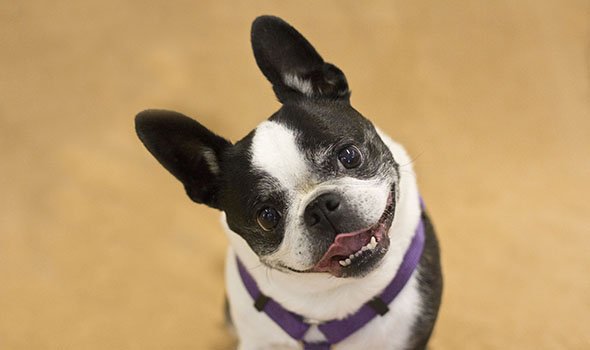
At Meadowmont Animal Hospital, we emphasize the role of veterinary dentistry in supporting your pet’s quality of life and general pet health. Our animal clinic takes your pet’s oral health very seriously — a dental health assessment is included as part of your pet’s routine wellness examination. Our veterinarians tailor dental health care plans for each pet which may include daily home care, professional dental cleaning, dental radiographs, and oral surgery if needed.
Periodontal disease is the most common medical disorder among pets nationwide, affecting more than 80 percent of dogs and 70 percent of cats by age three. If left untreated periodontal disease can reduce your pet’s health, quality of life, and lifespan. Infection and inflammation in the mouth result in chronic pain and have systemic impacts on the organs. Harmful bacteria originating in the mouth can enter the bloodstream causing serious complications in the heart, kidneys, and liver.
Preventative Veterinary Dentistry
Similar to humans, a good oral health routine is key in avoiding most types of periodontal disease. The first and best line of defense in preventative pet dental care includes home dental care, regularly scheduled exams, and professional dental cleanings. Home pet dental care may include daily tooth brushing, oral hygiene rinses, dental chews, dental treats, prescription dental diets, or water additives. Our veterinarians prefer products carrying the seal of the Veterinary Oral Health Council.
At Meadowmont Animal Hospital, professional dental cleanings consist of ultrasonic enamel scaling to remove tartar, subgingival hand curettage, enamel polishing, and application of a periodontal protective seal called Sanos. All of our professional dental cleanings include a thorough oral exam with gingival probing and full mouth radiographs to fully assess the health of the tooth, root, and surrounding structures. General anesthesia is required to safely perform these procedures on your pet.
Digital Radiography
Our pet clinic utilizes digital radiography: a powerful diagnostic tool used to detect dental disease in pets and guide extraction. Radiography, a quick and painless process, uses a controlled dose of x-ray radiation to examine your pet’s mouth, using the varying densities of its contents (teeth, gums, ligaments, etc.) to construct a composite image. This digital readout highlights any present abnormalities, allowing diagnosis and treatment to commence.
Periodontal Disease
Sometimes periodontal disease is detected during our thorough oral exam and dental radiographs. When possible, we use tooth sparing techniques to minimize extractions. Gingival pockets may be cleaned out and packed with an antimicrobial product to improve gingival health and encourage reattachment of the gingiva. Superficial tooth fractures may be treated with an enamel bonding composite rather than a tooth extraction.
Depending on the type and severity of the periodontal disease, however, extraction may be the best procedure to resolve pain and infection. Dental extraction procedures are treated with similar multimodal pain management techniques as discussed in the veterinary surgery section. Often your pet will be eating soft food within 24 hours of the extraction procedure.
Veterinary dentistry has developed rapidly over the past fifteen years and is now approaching the same sophisticated techniques that are available in human dentistry. Research has proven that pets who have received modern veterinary dental procedures and professional cleanings have an increased lifespan and quality of life.
Our pet hospital offers complete veterinary dentistry services including:
- Professional dental cleaning
- Digital dental x-rays
- Preventative dental care
- Oral surgery
If you would like to speak to someone to discuss scheduling veterinary dental services for your pet, don’t hesitate to contact us. Our animal clinic is happy to serve the pets and pet owners of Chatham County, North Carolina, and our local towns of Chapel Hill, Durham, Carrboro, and Hillsborough.